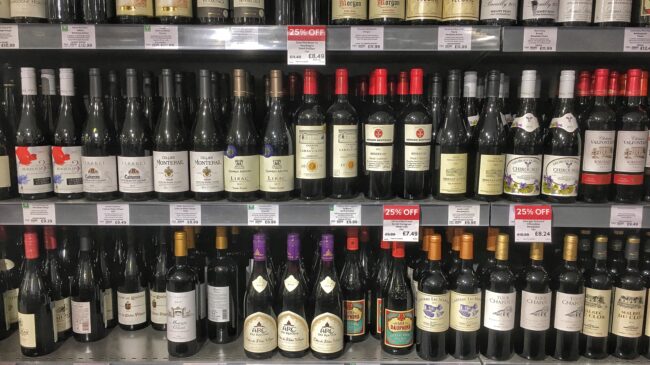Summary
In 2016, Colorado passed a law that would incrementally phase in grocery store sales of full-strength beer, wine, and liquor, with all stores allowed to sell all alcoholic beverages by 2037. Currently, however, wine can only be purchased in licensed liquor stores.
Colorado’s Initiative 121 on the November 2022 ballot would allow stores that are already licensed to sell retail beer to begin selling wine for off-premise consumption beginning in 2023. The measure would also allow these shops to submit an application to their local licensing authority in order to conduct wine tastings on-site.
Fiscal Impact
Based on the analysis provided by the Colorado Secretary of State’s Office, Initiative 121 is not expected to meaningfully increase either state revenue or costs.
Proponents’ Arguments For
Initiative 121 has been supported by third-party alcohol delivery companies, like DoorDash, and national grocery brands, like Target, organized under the issue committee Wine in Grocery Stores. They argue allowing grocery and convenience stores to sell wine, in addition to beer, would significantly increase convenience for shoppers who would no longer need to visit multiple locations to buy food, beer, and wine.
Opponents’ Arguments Against
Local liquor shops, which lost their monopoly on retail sales of full-strength beer in 2016, claim that eliminating their monopoly on wine sales would cause up to 1,000 liquor stores around the state to close. As they argued prior to Colorado’s legalizing the sale of full-strength beer in grocery stores, opponents of the initiative claim that allowing grocery stores to sell wine would harm local wineries and favor large national brands. Others have raised concerns that allowing wine sales in local grocery stores might increase underage drinking.
Discussion
Colorado’s experience with the legalization of the sale of full-strength beer in grocery stores has been largely positive. Though the move decreased liquor store beer sales volume, a 2020 study by the Research Institute at Colorado State University found that craft brewers benefited from the move, which stimulated interest in and demand for beer relative to other alcoholic beverages. Moreover, there is no evidence that allowing beer sales in grocery stores have had any meaningful effect on underage drinking.
Local liquor store owners’ fears are understandable. Removing their monopoly and allowing other shops to sell wine would potentially decrease their own sales. But, importantly, it would also significantly increase consumers’ choices and convenience, reducing the number of locations shoppers have to visit, and likely reducing the prices of the more popular brands due to increased competition. If this initiative passes and is enacted, liquor stores could respond in a variety of ways, including by competing with grocery stores by offering customers more knowledgeable staff to assist shoppers and by stocking the hyper-local and specialty brands their larger competitors may not offer.


